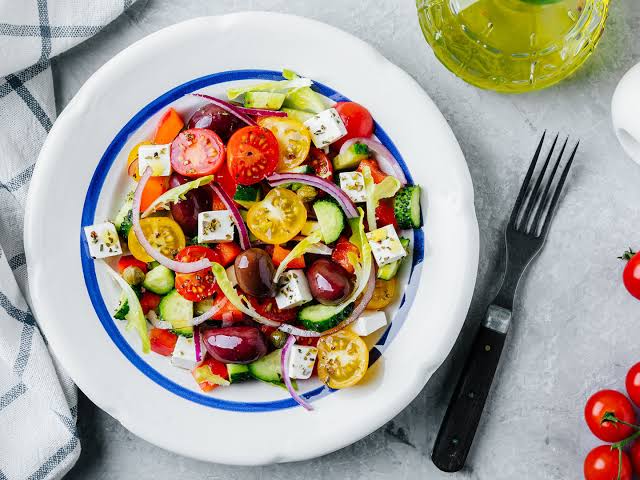
- The consumption of two or more sugar-sweetened beverages (SSBs) per day was linked to a doubling of the risk of developing early onset colorectal cancer (EO-CRC) in adult women in this study.
- Adults who replace their SSB intake with chemically sweetened drinks, coffee, low-fat milk, or whole milk can have a lower risk of developing EO-CRC.
- People between the ages of 13 and 18 who eat one daily SSB serving may have a 32 percent increased risk of developing EO-CRC.
In the United States, colorectal cancer is the second leading cause of cancer-related death.
In many wealthy countries, the incidence of EO-CRC, which occurs when people under the age of 50 develop the disease, has risen dramatically.
According to a 2020 report in CA: A Cancer Journal for Clinicians, approximately 150,000 Americans will be diagnosed with colorectal cancer this year, with approximately 53,200 dying as a result.
The authors also estimated that about 18,000 people under the age of 50 would be diagnosed with colorectal cancer, with 3,640 deaths expected in this group.
Adults born in the United States around 1950 have twice the risk of colon cancer and four times the risk of rectal cancer as those born around 1990.
According to a recent study published in the journal Gut, drinking two or more SSBs per day in adulthood doubles the risk of bowel cancer before the age of 50.
According to the findings, each regular SSB serving in adult women is linked to a 16 percent increased risk of developing EO-CRC.
In addition, the study discovered that for people aged 13–18 years, each additional SSB serving per day is associated with a 32 percent increased risk of developing EO-CRC.
Examples of SSBs include soft drinks, pre-packaged fruit drinks, energy drinks, and sports drinks. In the American diet, sugary beverages are the most common source of added sugars.
In reality, energy intake from SSBs increased by 135 percent from 1977 to 2001.
Unique epidemiologic evidence
The researchers used data from 95,464 Nurses’ Health Survey II participants in this study. This is a long-term follow-up study of 116,430 registered nurses in the United States, all of whom were women between the ages of 25 and 42 when they enrolled in 1989.
Beginning in 1991, the women in the study used validated food frequency questionnaires to report on what they ate and drank every four years.
Researchers asked participants to remember their health and lifestyle patterns as adolescents in 1998.
Between 1960 and 1982, 41,272 women commented on what they usually ate and drank, as well as the amounts of these products. They were between the ages of 13 and 18.
The participants were provided information on potentially influencing factors such as their family history of bowel cancer, their lifestyle patterns, and any daily use of aspirin, NSAIDs, or vitamin supplements.
109 women developed bowel cancer before the age of 50 years in a study that lasted 24 years.
The results “bring specific epidemiologic evidence that SSB intake may partly lead to the rapid increase of CRC in younger adults,” according to the study’s writers.
Notes on the research
According to study co-author Dr. Jeffrey Meyerhardt, it’s critical for researchers to figure out what’s causing this rise. He is the clinical director of the Dana-Farber Cancer Institute’s Gastrointestinal Cancer Center in Boston, Massachusetts.
“It’s thought that early-life exposures are leading to this increase,” Dr. Meyerhardt told Medical News Today. “Studying exposures that can be avoided is [essential] to bringing this rising health problem under control.”
According to study co-author Dr. Yin Cao, substituting SSBs with reduced-fat or whole milk tends to be beneficial. She is a surgery associate professor at Washington University School of Medicine in St. Louis, Missouri.
“We found [that] replacing one daily serving (8 oz) of SSBs with an equivalent amount of reduced-fat milk or total milk was associated with a 35–36 percent lower risk of EO-CRC in this study,” she explained.
“During the second half of the twentieth century, while average per capita soft drink consumption in the United States rose by 500%, milk consumption fell by half. Milk is high in calcium, a mineral that has been linked to a reduced risk of colorectal cancer.”
“We hypothesise that low milk intake is associated with an increased risk of EO-CRC, and further research on this subject is underway.”
The researchers point out some flaws in their analysis. To begin, they point out that this was an empirical review, which can only determine correlation rather than cause. They also point out that since the majority of the participants were white women, the results do not extend to men or people of other ethnic groups.
Nonetheless, according to Dr. Cao, the report offers insight into future steps that public health officials might take.
“The immature and rapidly growing organs, particularly in adolescence,” she wrote, “may be more susceptible to exposures that could lead to cancer development.”
“Campaigns, education initiatives, and strategies aimed at the young population to minimise SSB consumption and/or substitute SSBs with other healthy beverages could help reduce time spent at risk and turn this window of increased vulnerability into an opportunity for improved health outcomes later in life.”






